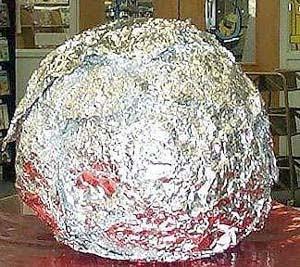
Isaiah 43:27) Your first forefather sinned, And your own spokesmen have rebelled against me.
(Genesis 3:17) And to Adam he said: “Because you listened to your wife’s voice and ate from the tree concerning which I gave you this command, ‘You must not eat from it,’ cursed is the ground on your account. In pain you will eat its produce all the days of your life.
(Job 14:4) Who can produce someone clean from someone unclean? No one can!
(Psalm 51:5) Look! I was born guilty of error, And my mother conceived me in sin.
(Romans 5:12) That is why, just as through one man sin entered into the world and death through sin, and so death spread to all men because they had all sinned—.
(Genesis 3:19) In the sweat of your face you will eat bread until you return to the ground, for out of it you were taken. For dust you are and to dust you will return.”
(Romans 6:23) For the wages sin pays is death, but the gift God gives is everlasting life by Christ Jesus our Lord.
(1 Corinthians 15:21) For since death came through a man, resurrection of the dead also comes through a man.
(Matthew 20:28) Just as the Son of man came, not to be ministered to, but to minister and to give his life as a ransom in exchange for many.”
(Isaiah 53:11) Because of his anguish, he will see and be satisfied. By means of his knowledge the righteous one, my servant, Will bring a righteous standing to many people, And their errors he will bear.
(Mark 10:45) For even the Son of man came, not to be ministered to, but to minister and to give his life as a ransom in exchange for many.”
(1 Timothy 2:5, 6) For there is one God, and one mediator between God and men, a man, Christ Jesus, 6 who gave himself a corresponding ransom for all—this is what is to be witnessed to in its own due time.
(Hebrews 9:28) so also the Christ was offered once for all time to bear the sins of many; and the second time that he appears it will be apart from sin, and he will be seen by those earnestly looking for him for their salvation.
See if I have this right:
Two simple questions for you, if you don't mind:
According to the Quran, why do we die?
Who go to heaven and why?
See if I have this right:
Two simple questions for you, if you don't mind:
According to the Quran, why do we die?
Who go to heaven and why?
See if I have this right:
Two simple questions for you, if you don't mind:
According to the Quran, why do we die?
Who go to heaven and why?
The traditional rendering of the Hebrew word neʹphesh and the Greek word psy·kheʹ. In examining the way these terms are used in the Bible, it becomes evident that they basically refer to (1) people, (2) animals, or (3) the life that a person or an animal has. (Ge 1:20; 2:7; Nu 31:28; 1Pe 3:20; also ftns.) In contrast to the way that the term “soul” is used in many religious contexts, the Bible shows that both neʹphesh and psy·kheʹ, in connection with earthly creatures, refer to that which is material, tangible, visible, and mortal. In this translation, these original-language words have most often been rendered according to their meaning in each context, using such terms as “life,” “creature,” “person,” “one’s whole being,” or simply as a personal pronoun (for example, “I” for “my soul”). In most cases, footnotes give the alternative rendering “soul.” When the term “soul” is used, either in the main text or in footnotes, it should be understood in line with the above explanation. When referring to doing something with one’s whole soul, it means to do it with one’s whole being, wholeheartedly, or with one’s whole life. (De 6:5; Mt 22:37) In some contexts, these original-language words can be used to refer to the desire or appetite of a living creature. They can also refer to a dead person or a dead body.—Nu 6:6; Pr 23:2; Isa 56:11; Hag 2:13.